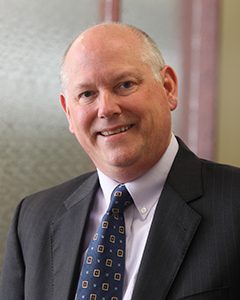Getting Ready for a PEP Rally!

The U.S. Department of Labor’s (DOL) June 18, 2020 request for information (RFI) on prohibited transactions involving Pooled Employer Plans (PEPs) is good news for plan sponsors and potential participants alike.
As we wrote at the time of its passage, one of the major provisions of the Setting Every Community Up for Retirement Enhancement (SECURE) Act of 2019 was the creation of the PEP, which allows unrelated employers to collectively participate in a retirement plan that is professionally run. As with the Multiple Employer Plan (MEP), the economies of scale of PEPs allow the participating employers to benefit from lower fees than in traditional single employer plans.
In the RFI, the DOL states:
PEPs are required to designate a pooled plan provider who is a named fiduciary of the PEP. As a fiduciary, the pooled plan provider is subject to standards and restrictions in ERISA and the Internal Revenue Code, including the prohibited transaction provisions restricting fiduciaries of plans from engaging in conflict of interest transactions.
This document requests information on the possible parties, business models, and conflicts of interest that respondents anticipate will be involved in the formation and ongoing operation of PEPs.
This document also requests information on similar issues involving multiple employer plans sponsored by employer groups or associations or professional employer organizations (referred to herein as “MEPs”).
The Department of Labor (the Department) is considering whether to propose a class exemption on its own motion to cover prohibited transactions involving PEPs and MEPs.
It should further be noted that over the past six months, the DOL has been talking with firms like ours, as well as a number of working groups to which we belong, as it goes about deciding on guidance on PEPs.
The RFI asks a number of questions in three categories: pooled plan providers (PPPs) and MEP sponsors; pooled investments; and employers participating in a PEP or MEP. Here is a summary of the questions, which we have paraphrased for ease of reading:
- What types of entities are likely to act as PPPs?
- What business models will PPPs utilize in making a PEP available to employers?
- Are there any conflicts of interest that a PPP, its affiliates and related parties, could have vis-à-vis the PEP and its participants?
- What differences, if any, would there be in the types of fees and compensation associated with a PEP versus those of a single employer plan?
- What plan investment options will be offered in PEPs, and in MEPs?
- How many employers and participants are likely to be covered by newly formed PEPs and MEPs?
- Will the existence of multiple employers in a PEP or MEP cause greater exposure to prohibited transactions in connection with investments in employer securities or employer real property?
Thought-provoking questions all, ones that must be addressed thoroughly – and, as it turns out, quickly. There is a 30-day comment period that expires on July 20, 2020. While it will likely take at least 60 if not 90 days for DOL to issue further guidance, the plan is still to allow PEPs to be offered in 2021.
We are truly excited about this, and are very much looking forward to the DOL’s publication of guidance so we can begin to set up PEPs in a structured way for next year.
About the Author
